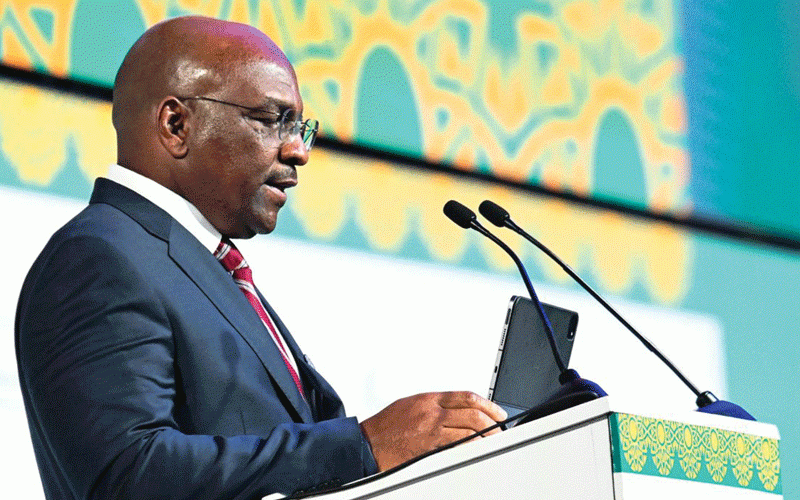
Our Projects are
Transforming African Trade
Quick Contacts
2nd Floor, Fidelity Insurance Centre Waiyaki Way, Westlands

LAST WEEK there was a historical gathering comprising African leaders, bankers and business executives and their Caribbean counterparts in The Bahamas to map strategies on how the two regions can combine forces to confront global challenges headlined by nationalism and de-globalisation.
Afreximbank’s annual meetings and the third AfriCaribbean Trade and Investment Forum (ACTIF) came 16 years after the African Union designated the diaspora as Africa’s sixth region.
It was also historic in the sense that Afreximbank annual meetings were held in the Caribbean for the first in an event touted as a reunion of all Africans in the context of Global Africa, a gathering tipped to shape the course of the two regions’ shared vision and aspirations.
The call for a united Global Africa comes in the wake of geo-political tensions and associated geo-economic shifts, the rise in neo-protectionism underpinned by trade and technology wars as countries jostle for economic dominance has put a severe dent on multilateralism, according to Denys Denya, Afreximbank’s senior executive vice-president.
These recurring global shocks continue to undermine the developmental aspirations of most developing nations, while at the same time the impact of climate change and extreme weather conditions are threatening to erode any economic gains achieved by developing nations.
Most developing countries have been at the receiving end of global challenges and are left at the mercy of creditors whose terms of lending appear to perpetuate a cycle of borrowing which impedes macro-economic management and socio-economic development.
All these setbacks should galvanise Global Africa to take stock of its fragmented approach to global issues. It is evident that there is strength in unity. A region with a population of over 2 billion cannot continue to be hewers of wood and drawers of water.
There is a need to deepen trade and investment flows as a bulwark against de-globalisation.
The Pan African bank, Afreximbank, is driving the process of increased trade and investment in Global Africa, opening a Caribbean office in Barbados as part of its diaspora strategy and co-organising ACTIF alongside the African Union and African Continental Free Trade Area secretariat. ACTIF has been an annual event since 2022.
Where does this leave Zimbabwe? It means there should be conversation along Global Africa. There is a bigger market out there which must be exploited.
A population of over 2 billion is a good market to exploit. Yet in the rush to capitalise on the bigger market, standards should not be thrown out of the window. There are cheaper alternatives out there which can plug the demand gap.
Our products must be competitive. This means that the costs of production must be lower for Zimbabwean firms to tap into the large market.
Enablers to production such as electricity and water must be available for local firms to concentrate more on production instead of investing in alternative sources of these crucial services.
Protectionism local firms clamour for is not sustainable.
There are benefits to be derived from an expanded market. A recent report released by a United Nations shows that strengthening of trade ties between Africa and the Caribbean can unlock US$1,8 billion in annual business by 2028.
Read original article
Disclaimer: The views and opinions expressed in this article are those of the authors and do not necessarily reflect the official policy or position of TradeMark Africa.